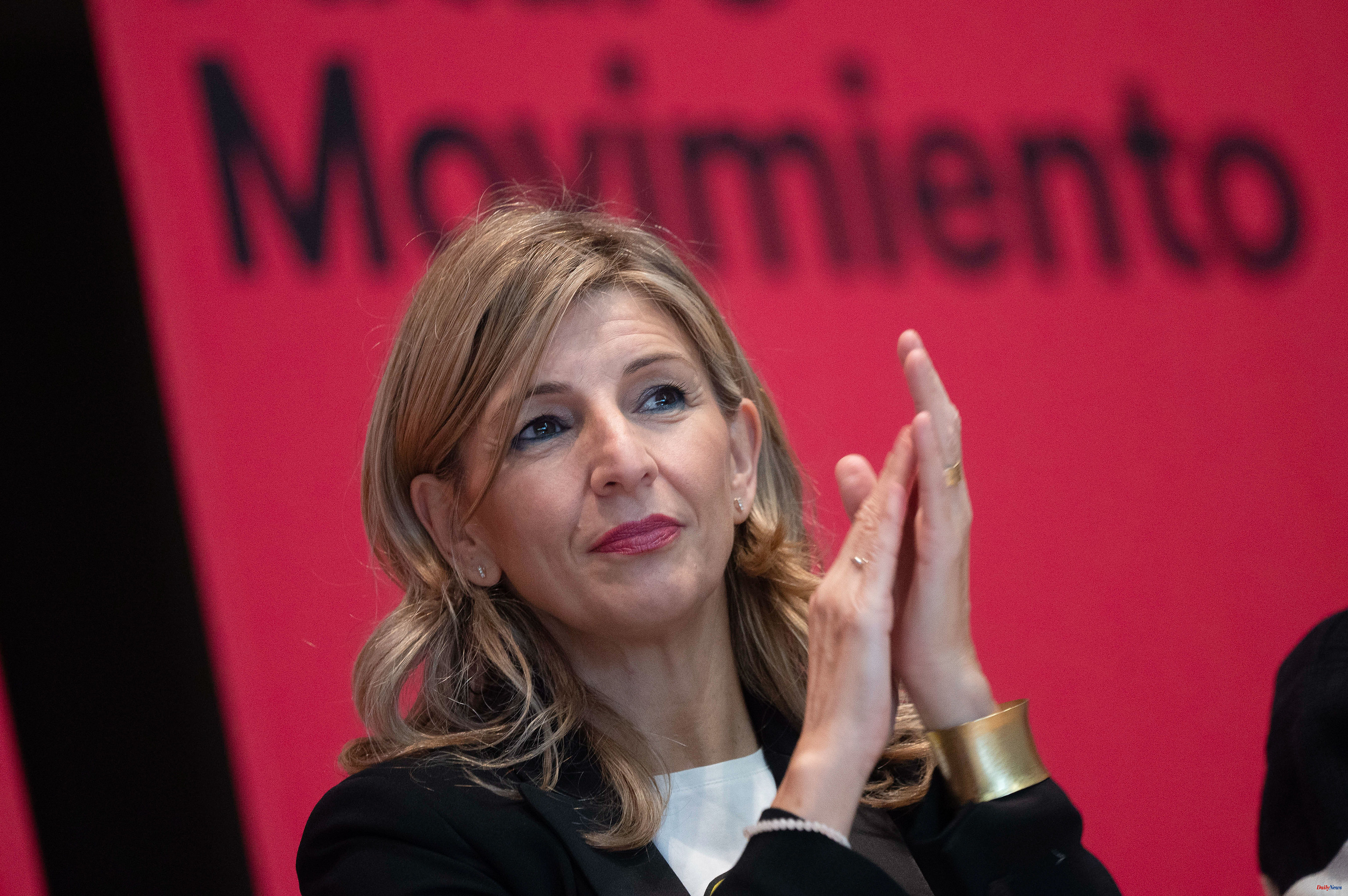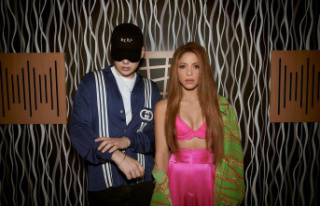The long wait is coming to an end. Yolanda Díaz will announce her candidacy for the 2023 general elections in a great act that will take place at the end of March or around Easter, in April, in which she will assume the challenge of bringing together the largest number of parties of the alternative left to the PSOE, also including Podemos, under the political banner of launching a new "country project".
The preparation of this act, which Cadena Ser has advanced and EL MUNDO has confirmed, is waiting to specify a date for its celebration. In any case, the idea with which they work, according to the sources consulted, is that it be a great staging in which the political formations that Yolanda Díaz aspires to integrate into her Sumar project are present, represented by the leaders her.
Thus, the second vice president of the Government wants to be in the 2023 general elections the umbrella under which fifteen national or territorial parties walk together and be able to reattach what has been broken in that political space in recent years. Her bet is that Podemos is also inside, despite the turbulent relationship that both maintain, although this will force a complicated negotiation due to the desire of the purples to play a leading role in the "coalition".
With other formations it will certainly be much easier, because they have been in tune with the vice president for some time and have shown full support for the Sumar project. These are Izquierda Unida and Ada Colau's commons, which have become her two great political supporters. With them and with Galicia en Común or Alianza Verde, the United We Can pack would be complete.
From there, the challenge that Díaz has assumed in the last year or so has been to bring positions closer to those who broke with Podemos. Mainly, Más País (Íñigo Errejón), Más Madrid, Compromís, Equo and Proyecto Drago (the new party of Alberto Rodríguez). And, furthermore, with other forces in the orbit of the alternative left such as the Aragonese Chunta or Més per Mallorca.
The sources consulted indicate that the act of presentation will serve for Díaz to take the step of announcing his candidacy and express his desire to lead a space in which "everyone" is present. They trust that the representatives of all the parties with whom they have been speaking at this time will meet, because they are going to be invited.
Of course, those of Unidas Podemos will be invited: Ione Belarra, Alberto Garzón, Ada Colau or Juantxo López de Uralde. But also those of other forces outside that space, such as Íñigo Errejón, Mónica García, Joan Baldoví or Alberto Rodríguez. What would be a powerful image of unity.
This act will come before the regional and municipal elections in May, when some of these parties compete with each other for the same electorate and where in some territories relations between parties sparkle.
Since Pablo Iglesias pointed to Díaz as his successor at the head of the United Podemos space and praised her as the next United Podemos candidate, she has been completing milestones in the objective of getting rid of that designation to build her own leadership that is based on the legitimacy emanating from the citizenship. For this reason, she undertook a "listening process" to build her political project and, in parallel, established a round of contacts with the different political forces.
During this time, Díaz has received a lot of pressure to advance her announcement, especially from Podemos, which is the one who has cornered her the most with her statements and gestures to make her take steps and say publicly if she was going to count on them and under what conditions. The relationship with the purples in this phase has been seriously deteriorating and even Podemos began working on a plan B to launch Irene Montero as a candidate in case an agreement failed. An agreement that has not yet been reached and on which there is still a lot to work on. Because Podemos wants a leading role on the electoral lists.
Meanwhile, the reconfiguration of the space to the left of the PSOE continues to boil. Íñigo Errejón (Más País) and Joan Baldoví (Compromís) have been in Las Palmas this Friday to present their alliance with Proyecto Drago, the new political party in the Canary Islands led by the former leader and former deputy of Podemos Alberto Rodríguez.
This pact is part of the so-called Turia Agreement, under which the formations outside United We Can are coming together, which will foreseeably end up in Sumar in the 2023 general elections but which in May will compete by themselves in their autonomous communities. There are also the Chunta or Més per Mallorca.
The political alliance with Alberto Rodríguez is very relevant because of the potential it has for the regional elections in the Canary Islands, but also because it means continuing to expand a territorial network of support that could be decisive for Yolanda Díaz. Not in vain, the second vice president does not have a party or cadres behind her, but rather a platform that needs territorial implantation to develop and to campaign when the time comes.
As these forces go free in May, and have their electoral processes on top, for the moment they avoid talking about the details of a pact with Sumar. This has been stated by Errejón, who has said that Díaz's project sounds "good" to him but that they are now focused on the elections: "We are thinking and looking at May." For his part, Baldoví has also postponed the issue until after the elections. "When it's time, we'll water," said the leader of Compromís.
According to the criteria of The Trust Project












